18 examples of AI in hospitality & travel (+Use cases and best practices for 2025)
Imagine this: You step off a long-haul flight, and instead of waiting in line at the check-in desk, you walk straight into your hotel room. Sounds great, right? The hotel’s AI-automated systems has already verified your identity, checked you in, and assigned you a room that matches your preferences.
This sort of seamless, hyper-personalized travel is no longer just a futuristic notion—it's already happening. But AI’s impact in travel and hospitality goes far beyond the convenience of touchless check-ins and 24/7 AI agent assistants. It’s reshaping the entire customer experience, promising a new gold standard in everything from itinerary planning to sustainability to fraud prevention. And with 72% of businesses experimenting with using AI, it may soon be critical to staying competitive.
This article shows you the 18 best ways to use AI in travel and hospitality with real-life examples of how AI is transforming operations, enhancing guest experiences, and creating new opportunities for innovation and revenue in the travel and hospitality industry.
Here’s what you’ll learn:
What is AI for travel?
AI for travel refers to the use of artificial intelligence (AI) technology to enhance the travel experience for customers while streamlining operations for businesses. It includes everything from personalized recommendations to virtual travel assistants to predictive flight forecasting—all of which aims to create a more tailored, seamless, and satisfying journey for customers.
What is AI for hospitality?
AI for hospitality refers to the use of artificial intelligence (AI) technology to enhance guest experiences, streamline operations, and improve the profitability of hotels, restaurants, and other hospitality businesses. From AI-drive smart rooms to predictive maintenance to smarter inventory management, AI for hospitality aims to create both tailored guest experiences and more cost-effective operations to give operators a competitive edge.
How AI enhances travel industry technology
AI is revolutionizing the travel and hospitality industry by making experiences smarter, faster, and more personalized for customers, as well as more streamlined and data-driven for operations teams. Here are the core AI technologies driving this transformation:
AI agents: Autonomous systems for better customer experiences
AI agents are advanced systems designed to handle complex customer interactions with more context awareness and flexibility than traditional chatbots. Their performance improves over time through guided updates, feedback, and integrations with real-time data sources and company knowledge bases.
These agents can retrieve personalized information, automate full customer workflows, and anticipate guest needs based on past interactions and current context. For example, a hotel could build an AI agent that offers personalized room upgrades, adjusts in-room settings based on preferences, and proactively suggests dining or local activities based on a guest’s travel history.
Learn more: AI agents vs. chatbots
Machine learning: Dynamic pricing and demand forecasting
Machine learning is a branch of AI that enables systems to identify patterns in large datasets and make data-driven decisions without explicit programming. AI systems use machine learning to process historical and real-time data, identifying trends and predicting outcomes.
For example, in the travel and hospitality industries, machine learning algorithms can analyze historical booking data, competitor pricing, seasonal trends, and traveler behavior to optimize pricing strategies.
Generative AI: Personalized travel Itineraries and chatbots
Natural language processing (NLP) allows machines to understand and respond to human language in a conversational way. This foundational technology powers generative AI (Gen AI), which takes things a step further by enabling systems to create text, answer complex questions, and deliver personalized responses at scale.
In the travel industry, these technologies work together to power AI travel agents and chatbots that can handle bookings, make destination recommendations, and respond to customer service inquiries in real-time. Gen AI also enables dynamic, personalized itinerary creation based on a traveler’s budget, preferences, and history.
Predictive analytics: Understanding customer behavior and booking trends
Predictive analytics refers to the use of AI and statistical models to analyze past data and forecast future outcomes. By identifying patterns in traveler behavior, booking trends, and market fluctuations, travel companies can predict customer demand, booking patterns, and potential cancellations. For example, a hotel can leverage predictive analytics to optimize inventory, staffing, and marketing strategies.
Sentiment analysis: Real-time feedback insights
Sentiment analysis is a type of AI that processes customer feedback from various sources, such as online reviews, surveys, and social media, to determine overall sentiment. Hotels, airlines, and travel platforms use sentiment analysis to adjust service offerings and address customer concerns more effectively.
Robotic process automation (RPA): Ticketing and fraud detection
Robotic process automation is AI-driven software that automates repetitive, rule-based tasks to improve efficiency and reduce manual workload. It enables travel businesses to automate repetitive administrative tasks, such as flight check-ins, boarding pass generation, and fraud detection.

Automate customer service with AI agents
18 AI use cases in travel and hospitality
How can you use AI to enhance your travel or hospitality business and gain a competitive edge? Here are 18 real-world AI use cases, categorized by their impact on customer experience, operations, marketing, and sustainability.
Customer experience
1. AI agents supporting travelers in real-time
Today’s travelers expect fast, personalized assistance, especially when making time-sensitive decisions. AI agents can manage complex tasks like adjusting bookings, recommending hotels, and providing real-time updates based on traveler preferences and context.
These agents understand intent, access up-to-date information, and take action on behalf of the customer, helping travel companies scale support while improving service quality. By automating routine inquiries and completing transactions, AI agents reduce wait times and free up human staff for more complex or high-touch service needs.
Example: HotelPlanner.com uses AI voice agents to assist customers with room selection, availability, pricing, and payment, handling thousands of calls across multiple languages.
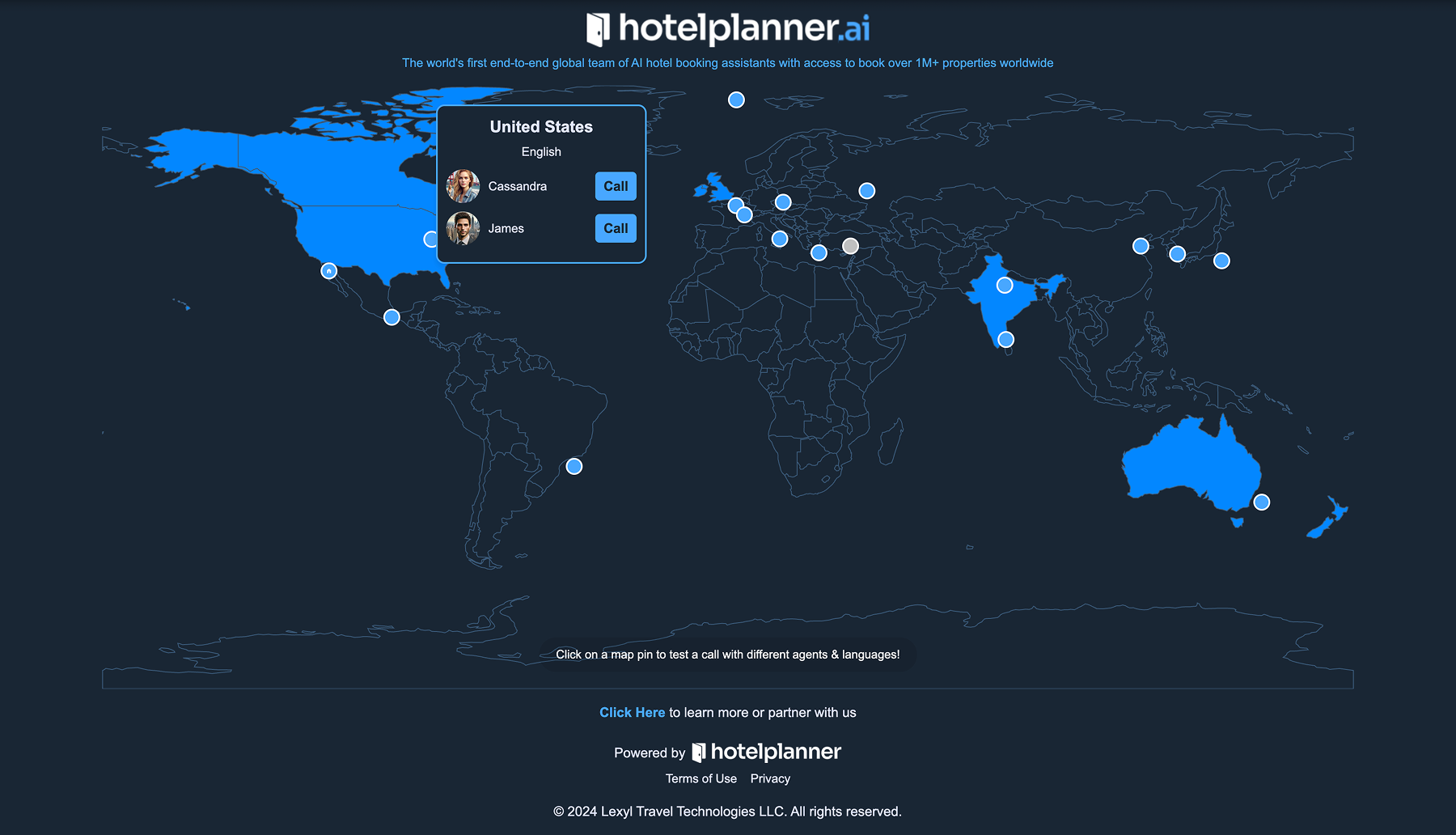
2. Smart AI concierges for hotels
AI-powered concierges are transforming hotel guest services, offering personalized, on-demand assistance that enhances convenience and efficiency. These AI-driven systems handle guest requests, recommend local attractions, and manage room preferences without human intervention.
Unlike human hotel concierges, AI concierges operate 24/7 and integrate with hotel management systems, guest history, and real-time data to provide tailored recommendations and proactive service. They can even adjust in-room settings (temperature, lighting, entertainment) based on past guest preferences, send reminders about reservations, and suggest dining or spa options based on the guest’s itinerary.
Example: Renaissance Hotels’ RENAI allows guests to receive personalized recommendations for dining, entertainment, and local experiences via text message or WhatsApp.
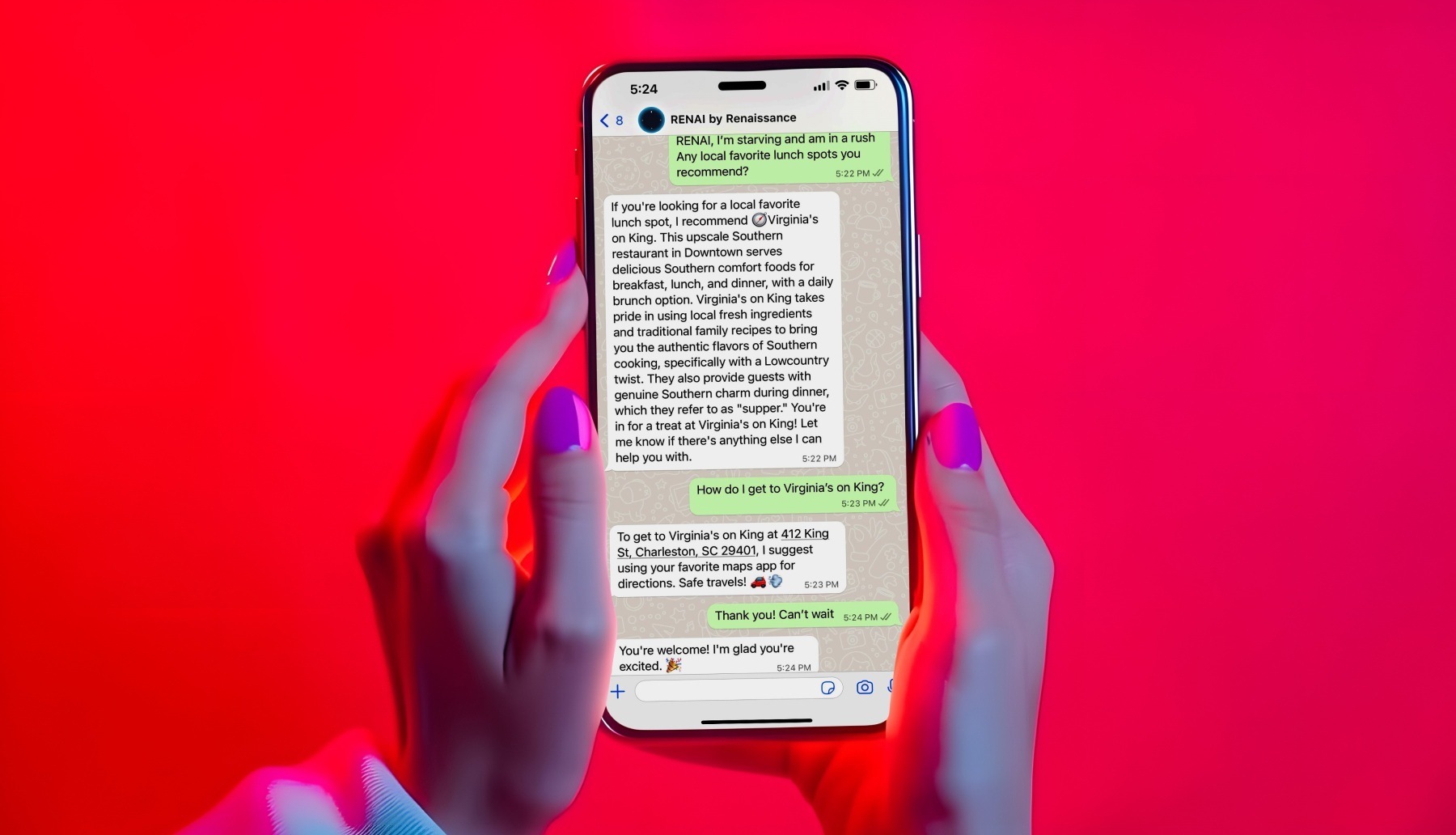
3. Hyper-personalized travel recommendations
No two travelers are the same, so why should their recommendations be? AI-driven travel platforms learn from past searches, bookings, and real-time preferences to curate highly relevant suggestions for hotels, flights, and activities.
These intelligent systems factor in seasonal trends, local events, and even real-time pricing fluctuations to provide the best options at the right time. Whether it’s a last-minute weekend getaway or a meticulously planned vacation, travelers get recommendations that match their unique style.
Example: Google Travel uses AI to analyze user search history, location data, and past bookings to provide personalized hotel, flight, and activity recommendations.
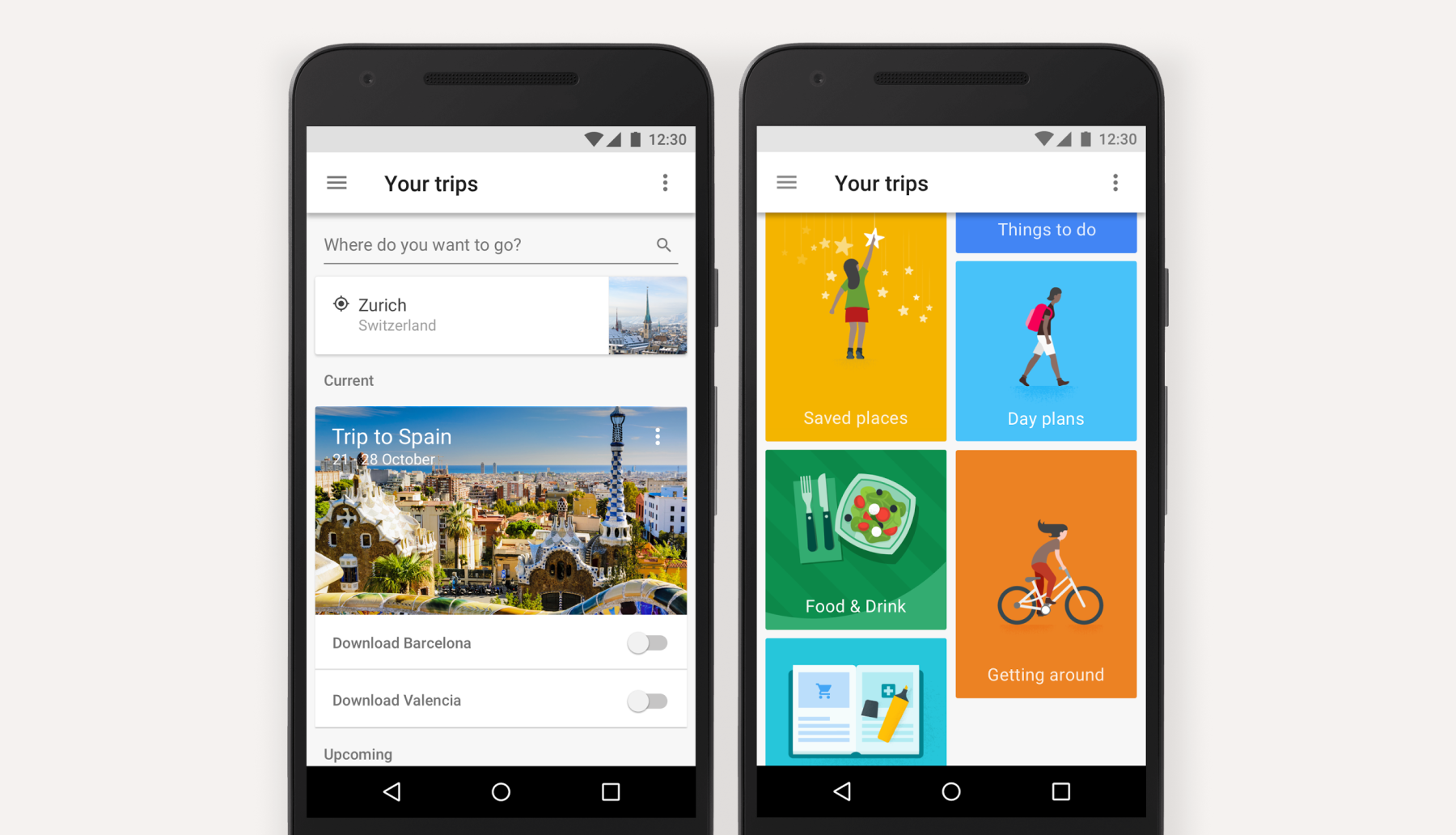
4. Automated itinerary planners
Planning the perfect trip can be overwhelming, but AI is making it effortless. Instead of spending hours researching destinations, comparing schedules, and mapping routes, travelers can now rely on AI-powered itinerary planners to do the heavy lifting.
These tools can suggest must-visit spots and create fully optimized travel schedules based on budget, interests, and real-time factors like weather and traffic. If a flight gets delayed or an attraction closes unexpectedly, the itinerary can update automatically, ensuring a stress-free experience.
Example: TripAdvisor’s AI trip planner generates customized travel itineraries, suggesting hotels, activities, and dining options based on traveler preferences for a seamless, personalized journey.
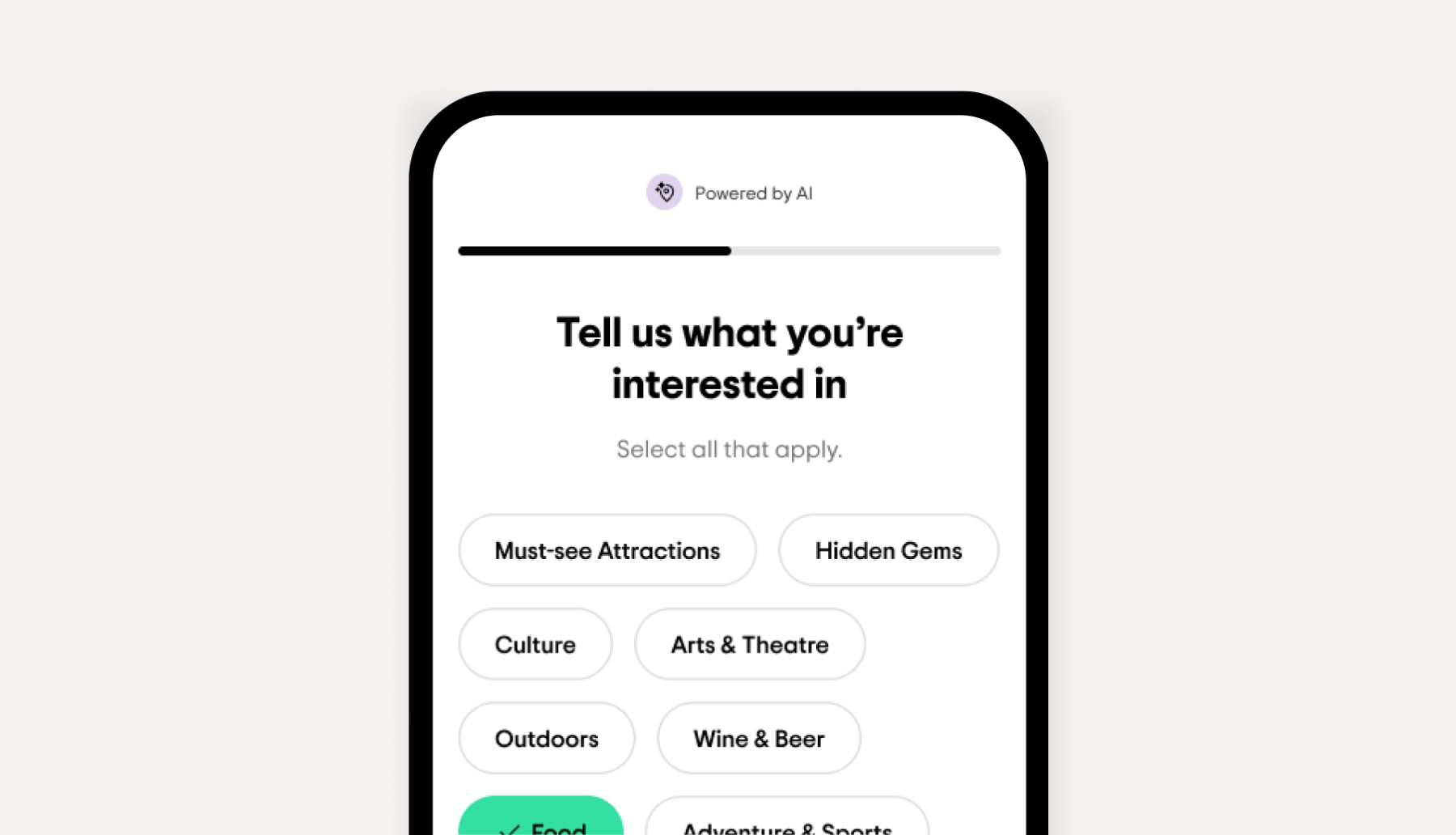
5. Frictionless hotel check-in and check-out processes
Nobody likes waiting in long lines after a long journey. Hotels are eliminating that hassle by introducing contactless check-ins and check-outs. With facial recognition, mobile key access, and AI-powered verification, travelers can go straight to their rooms without needing a key card or staff assistance.
Beyond convenience, this technology enhances security and personalization. Guests can pre-select their rooms, customize their stay preferences, and receive real-time updates through hotel apps. AI-driven systems can even detect check-out times and automate billing, ensuring a smooth departure without last-minute delays.
Example: The Hilton Hotel’s Digital Key allows guests to check in, choose their rooms, and unlock their doors via the Hilton Honors app, eliminating the need for physical key cards and reducing wait times at reception.
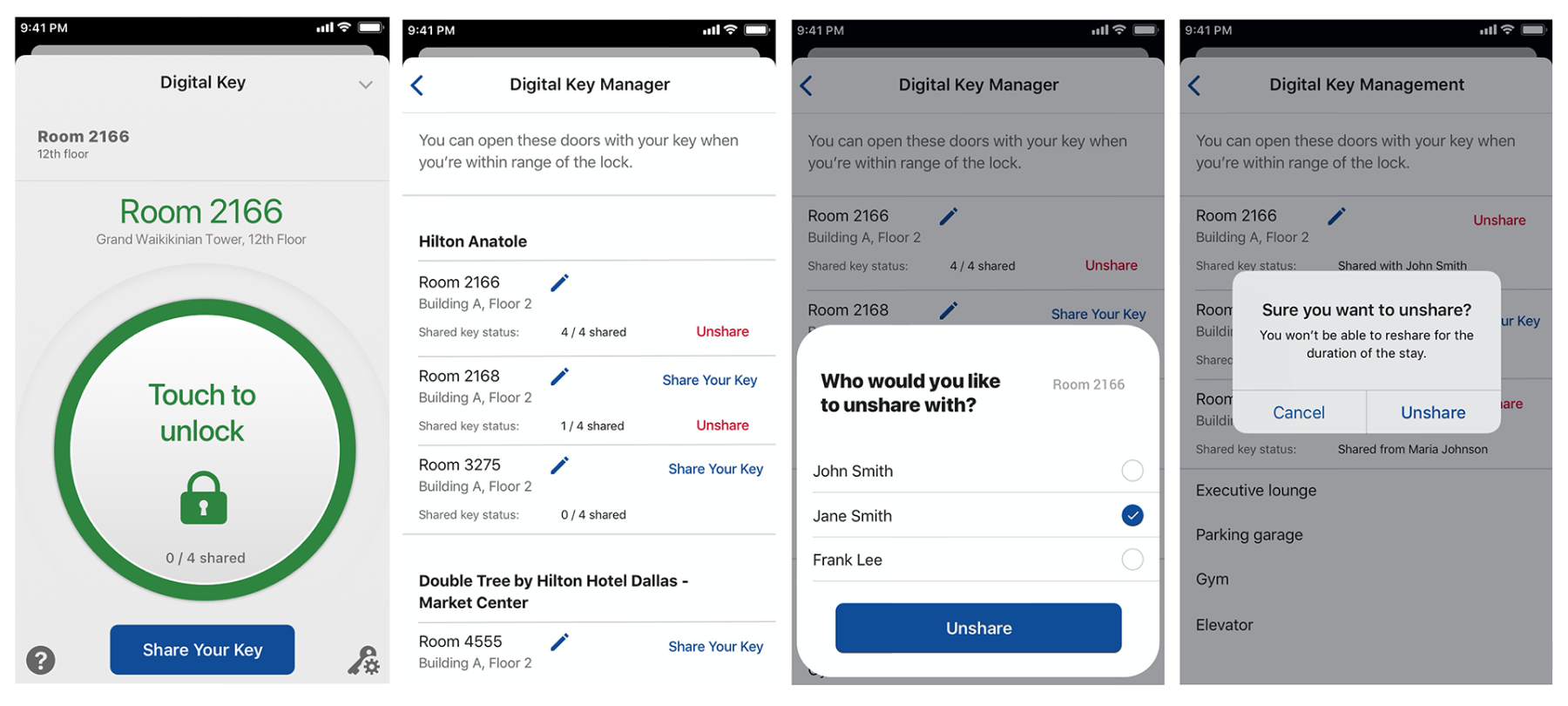

Reinvent CX with AI agents
Operational efficiency
6. Smarter pricing strategies with real-time adjustments
Prices in the travel industry are constantly changing, and staying competitive requires more than just seasonal discounts. Instead of relying on static pricing models, hotels and airlines are now using AI-driven dynamic pricing to adjust rates in real-time based on demand, competitor prices, and booking trends.
By continuously analyzing market conditions, booking patterns, and traveler behavior, AI can offer the best price at the right time. This can help businesses maximize revenue while ensuring travelers get fair, competitive rates.
Example: Airbnb’s Smart Pricing adjusts nightly rates dynamically based on seasonality, demand, and local events, helping hosts maximize occupancy while keeping listings competitively priced.
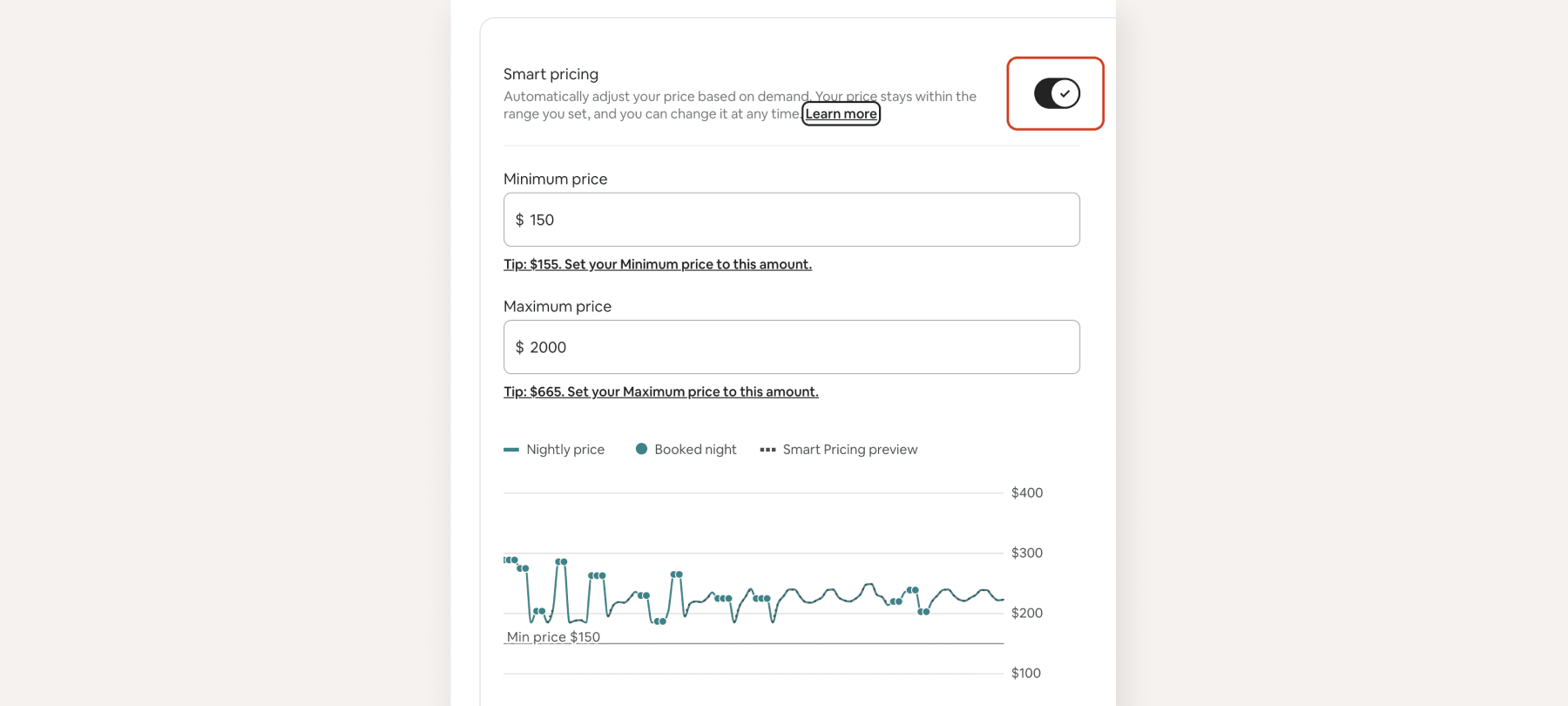
7. Preventing breakdowns before they happen
A delayed flight due to a mechanical issue or a broken hotel air-conditioning system in peak summer can ruin a traveler’s experience. Instead of waiting for problems to occur, predictive maintenance technology uses AI to detect potential equipment failures before they cause disruptions.
By analyzing sensor data, historical performance, and usage patterns, proactive AI agents can flag early signs of mechanical wear and tear in aircraft, hotel HVAC systems, elevators, and other critical infrastructure. These agents allow airlines and hotels to schedule maintenance proactively, reducing downtime, avoiding unexpected costs, and ensuring a smooth experience for travelers.
Example: Delta Airlines’ predictive maintenance system uses AI to identify aircraft components at risk of failure before takeoff, reducing flight delays and cancellations while improving passenger safety.
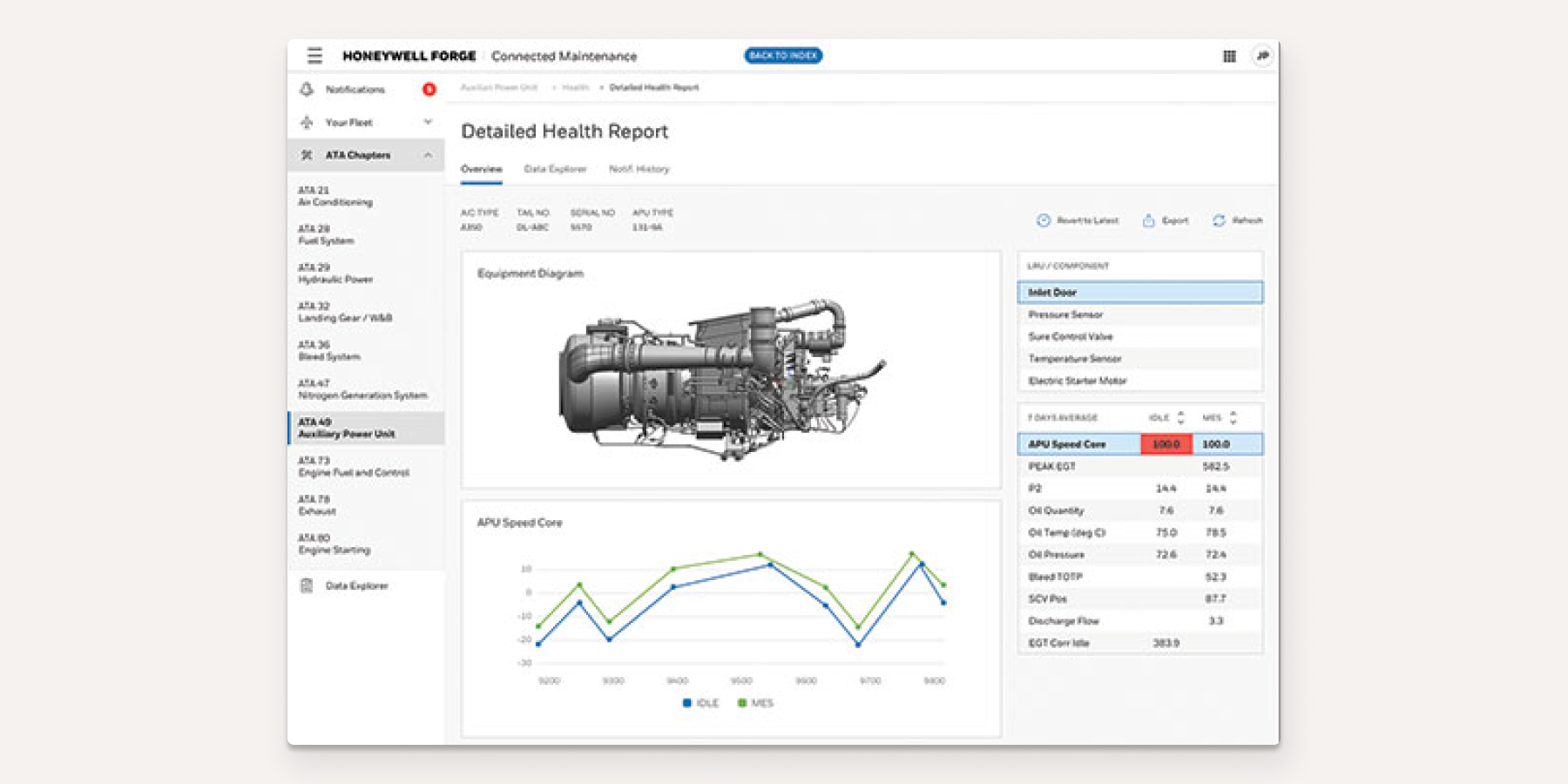
8. Stopping fraud before it impacts travelers
Fraud in travel bookings can disrupt travel plans, compromise customer data, and lead to financial headaches for both travelers and providers. Instead of reacting to fraud after it happens, AI-driven fraud detection proactively identifies and blocks suspicious transactions, payment anomalies, and fake bookings in real-time.
By analyzing behavioral patterns, transaction histories, and booking inconsistencies, AI can flag potential fraud before payments are processed. This reduces chargebacks, unauthorized transactions, and identity theft risks.
Example: Amadeus Fraud Alert scans millions of transactions to detect fraudulent booking behaviors, helping airlines and travel agencies prevent fraud before it affects customers.

9. Automating the tedious administrative tasks behind travel
Behind every smooth travel experience are countless administrative tasks—from processing bookings and refunds to managing invoices and ticketing. Robotic process automation (RPA) is transforming these back-end operations by automating repetitive tasks, reducing manual errors, and freeing up staff to focus on higher-value customer interactions.
By streamlining tasks like data entry, payment processing, and document verification, RPA helps travel businesses increase efficiency, lower operational costs, and improve accuracy. Whether issuing instant refunds for canceled flights or seamlessly processing thousands of hotel reservations, RPA ensures that administrative workflows stay fast and frictionless.
Example: Philippine Airlines implemented RPA to automate refunds, reducing processing time from weeks to just a few days.
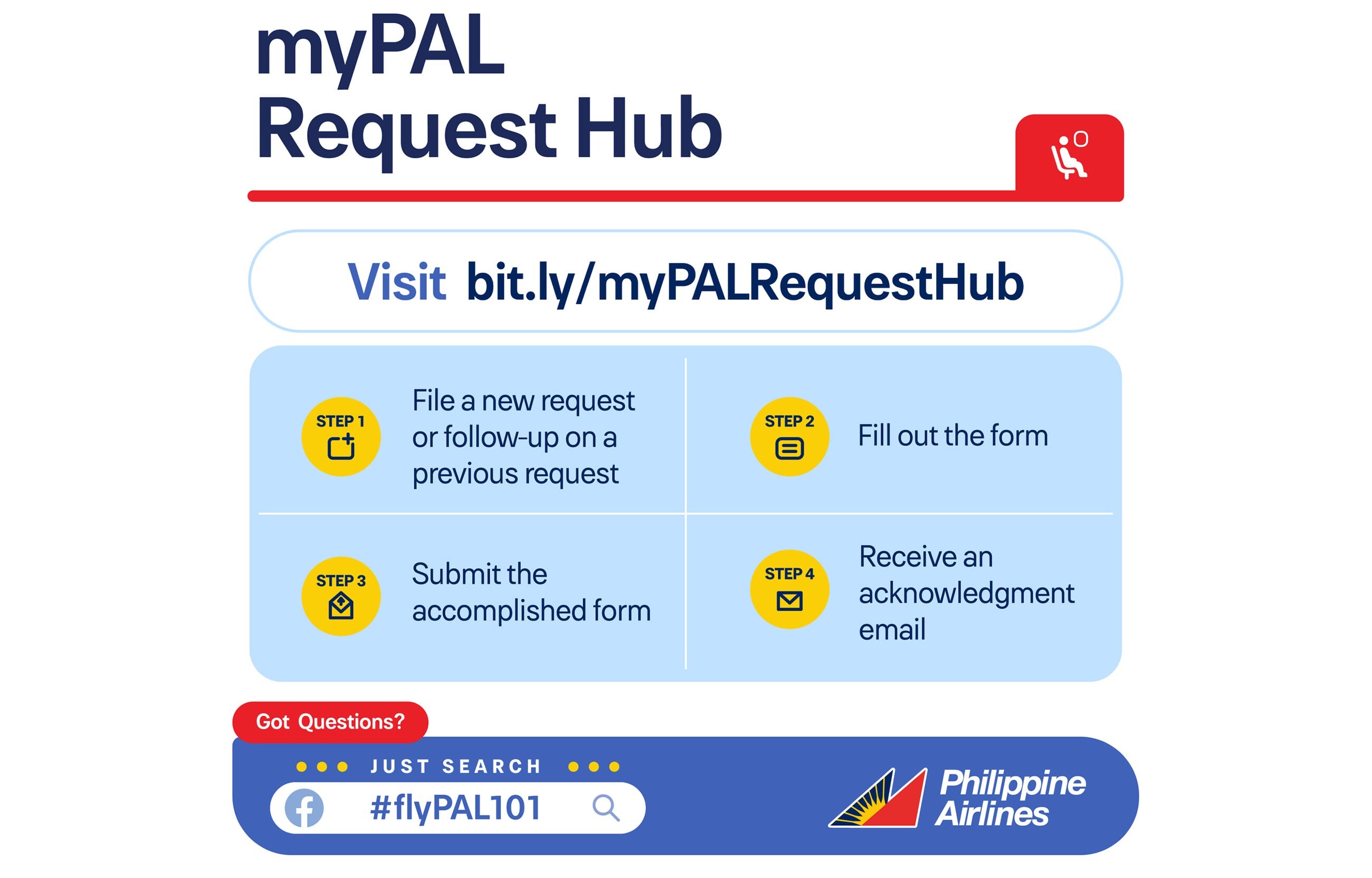
Marketing
10. Turning customer feedback into actionable insights
A single bad review can impact bookings, but understanding overall customer sentiment requires more than just reading individual complaints. AI-driven sentiment analysis helps travel companies decode thousands of customer reviews, social media posts, and feedback surveys in real time, revealing patterns that would be impossible to detect manually.
By analyzing tone, keywords, and recurring themes, AI helps hotels, airlines, and travel platforms identify what customers love and what frustrates them most. These insights allow businesses to refine services, adjust pricing, and proactively address concerns before negative experiences escalate.
Example: Expedia leverages AI algorithms to analyze user reviews and feedback, helping the company gain insights into customer preferences and pain points.
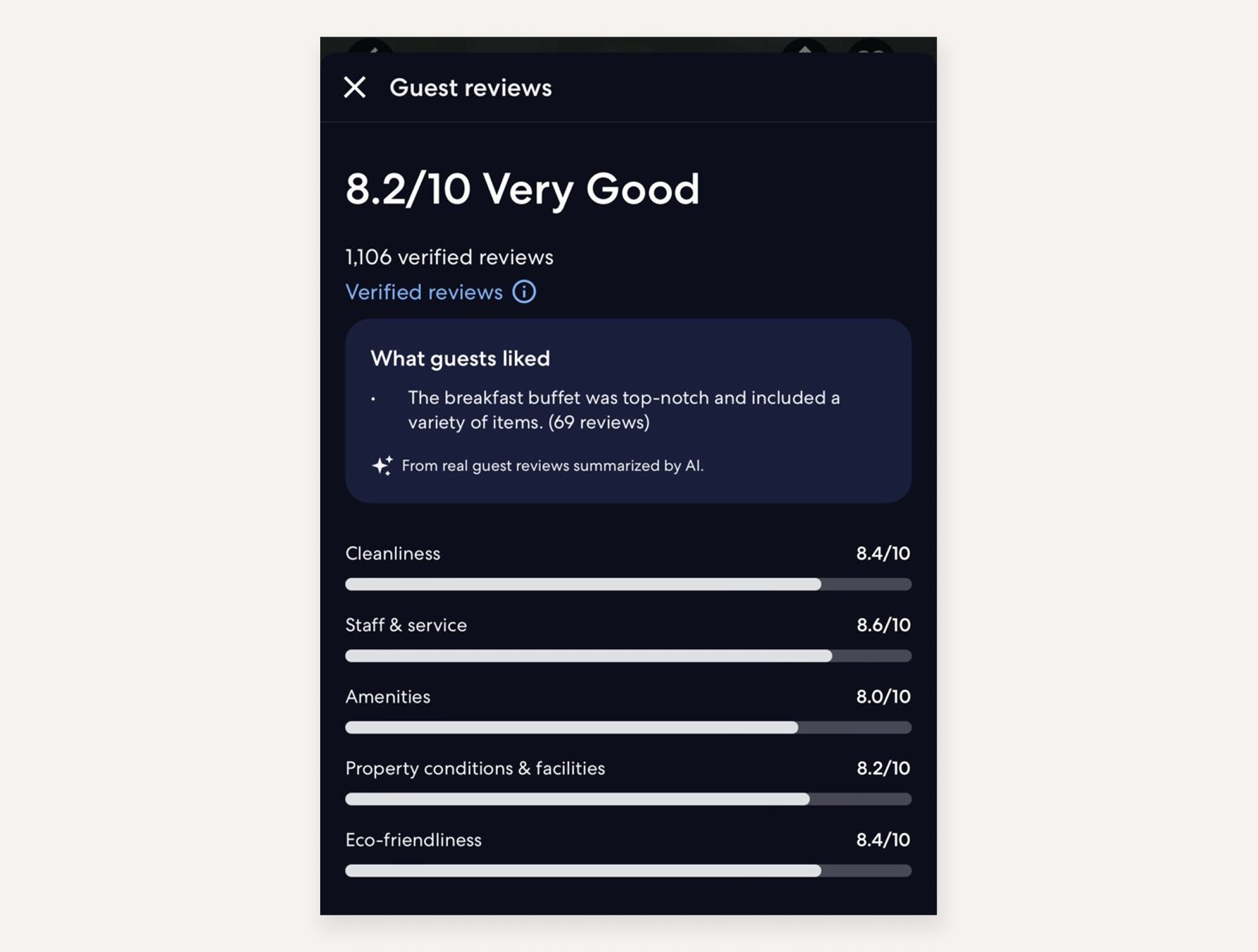
11. Personalized loyalty programs
Generic loyalty programs often fail to keep travelers engaged, but AI is changing that by making rewards more relevant and personalized. Instead of offering one-size-fits-all perks, AI-powered loyalty programs can tailor rewards to truly resonate with each traveler.
By leveraging predictive analytics and machine learning, AI can suggest custom travel discounts, exclusive upgrades, and early access to promotions based on individual habits. This makes loyalty programs more effective, increasing customer satisfaction and repeat bookings.
Example: eDreams ODIGEO’s Prime Discovery subscription service uses AI to personalize travel deals and exclusive discounts for its members.
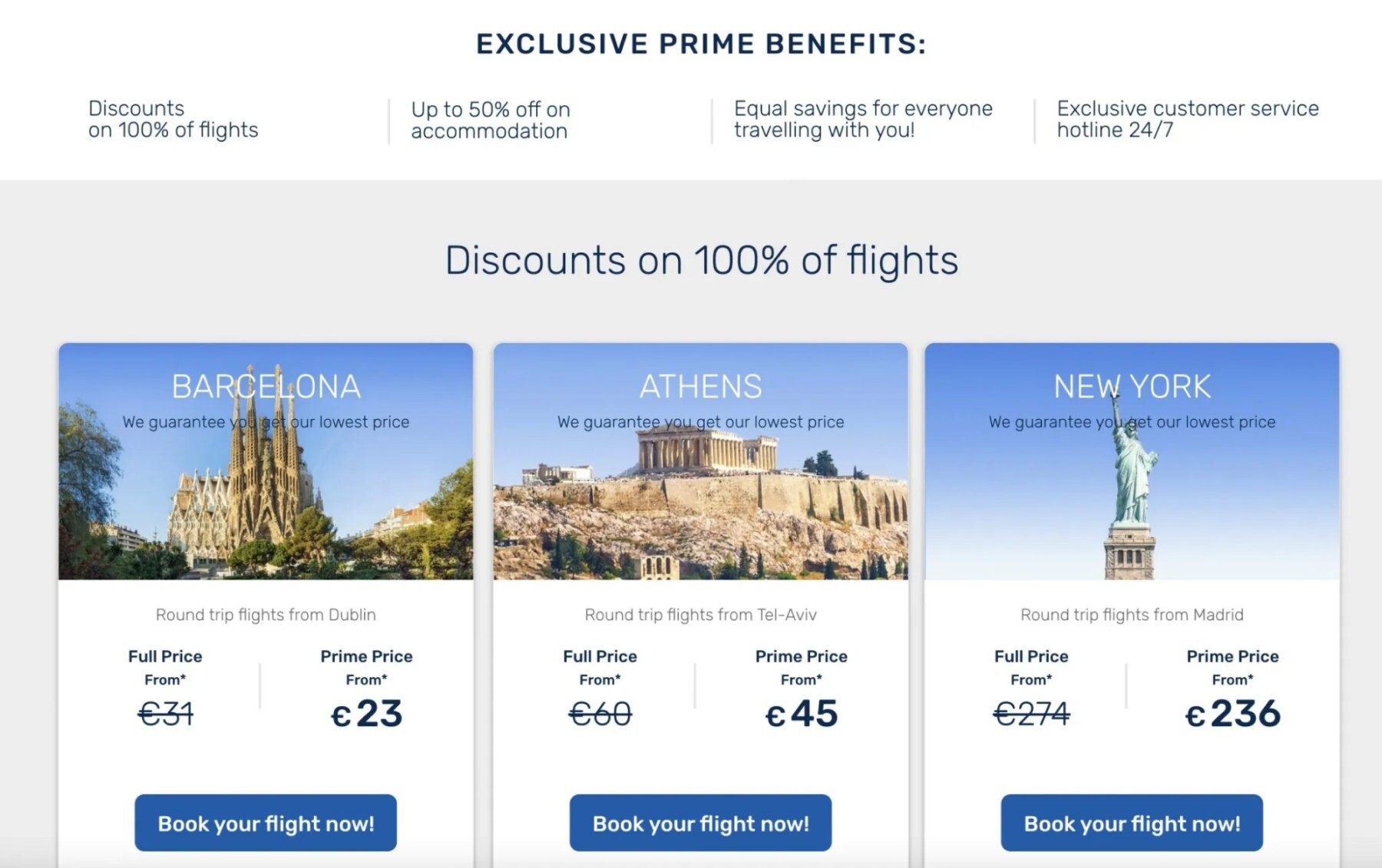
12. Smarter marketing with predictive analytics
Marketing in the travel industry is highly competitive, and guesswork isn’t enough to attract the right customers. Predictive analytics helps travel companies forecast trends, optimize promotions, and deliver targeted marketing campaigns based on real-time data.
By analyzing seasonality, booking behaviors, engagement rates, and customer demographics, AI in marketing can identify high-value travelers, recommend personalized offers, and determine the best timing for campaigns. This allows travel brands to maximize ad spend, increase conversions, and improve customer retention.
Example: Air France-KLM partnered with Google Cloud to use AI for analyzing passenger preferences and travel patterns, enabling more personalized and effective marketing campaigns.
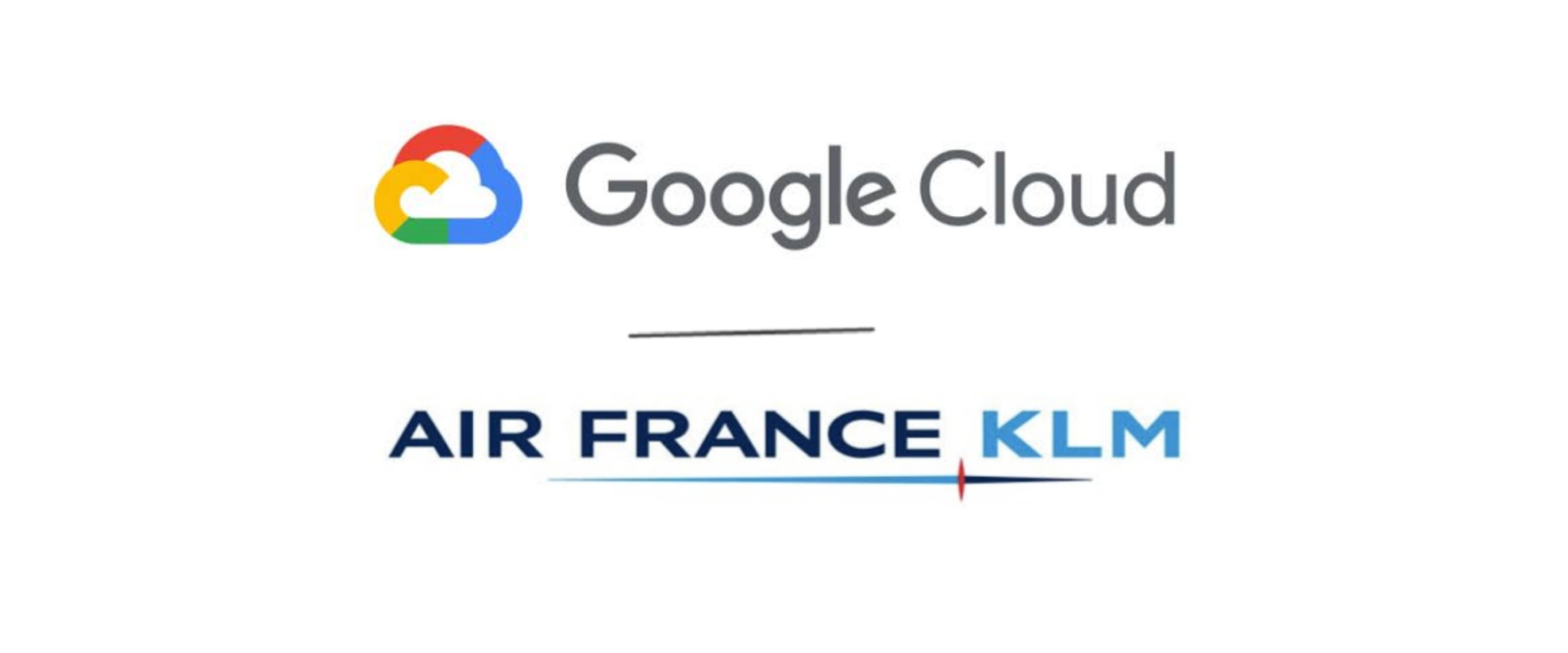
13. More relevant travel upgrades and add-ons
The right upgrade at the right time can enhance a trip. But irrelevant offers can feel pushy. By analyzing a traveler’s itinerary, preferences, and budget, an AI system can recommend seat upgrades, premium hotel rooms, rental cars, or local experiences that genuinely match the customer’s needs.
Whether suggesting lounge access before a long layover or offering a guided tour that aligns with a traveler’s interests, AI-powered personalization can help increase conversions and customer satisfaction.
Example: Booking.com’s AI-driven recommendation engine suggests room upgrades, rental cars, and local attractions based on a user’s past searches and real-time booking data.
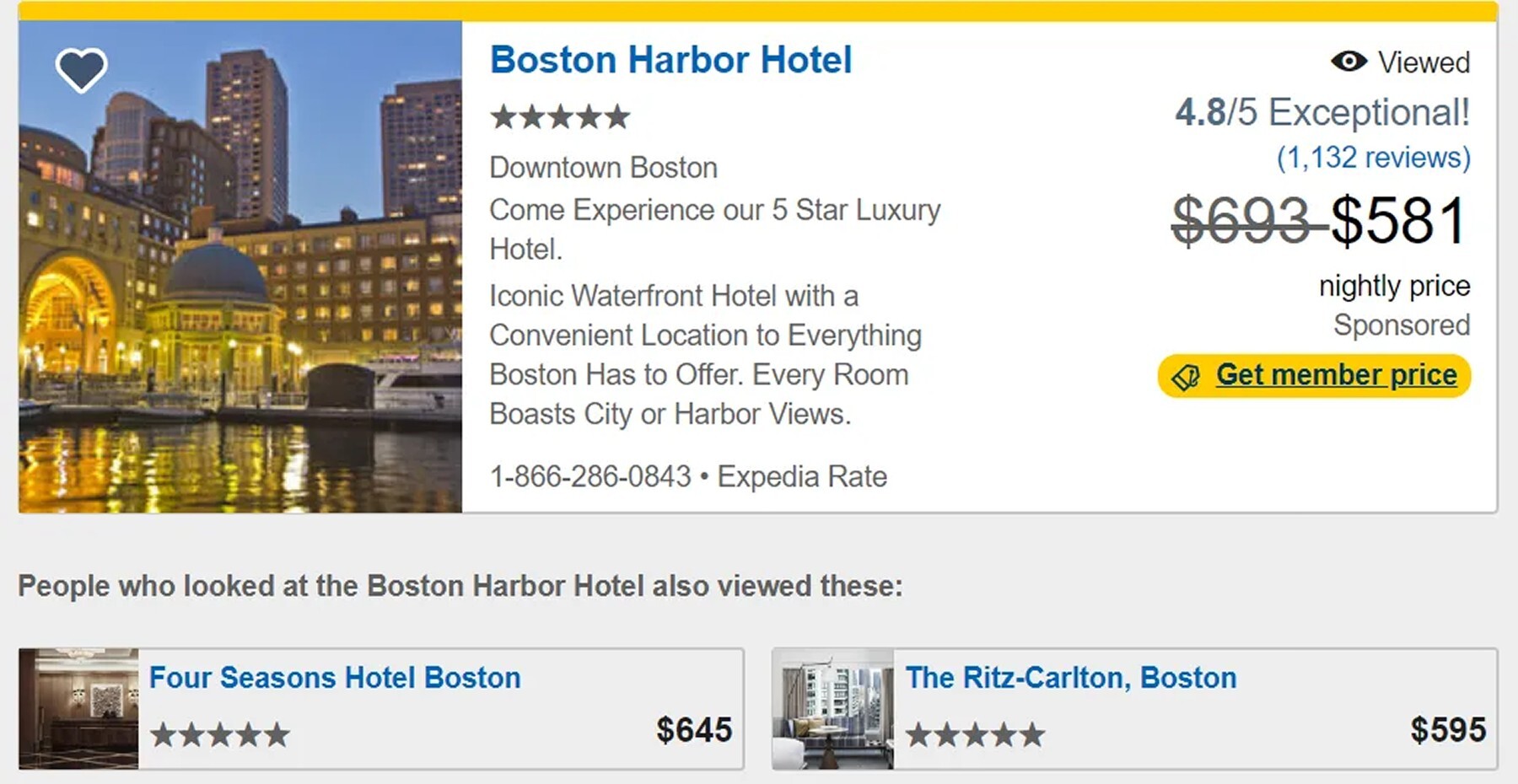
14. Tailored travel insurance pricing
Traditional travel insurance pricing often relies on broad risk categories, leading some travelers to overpay while others are underinsured. Insurance providers have begun leveraging AI to offer more personalized, dynamic pricing.
Using machine learning and predictive analytics, AI can determine appropriate coverage levels and pricing in real-time by analyzing factors like age, trip duration, destination risk, and medical history. This data-driven approach also helps insurers reduce fraud, improve claims processing, and enhance customer satisfaction.
Example: G1G Travel Insurance uses AI to analyze real-time travel data, tailoring coverage and dynamic pricing based on factors like destination, trip duration, and traveler demographics.
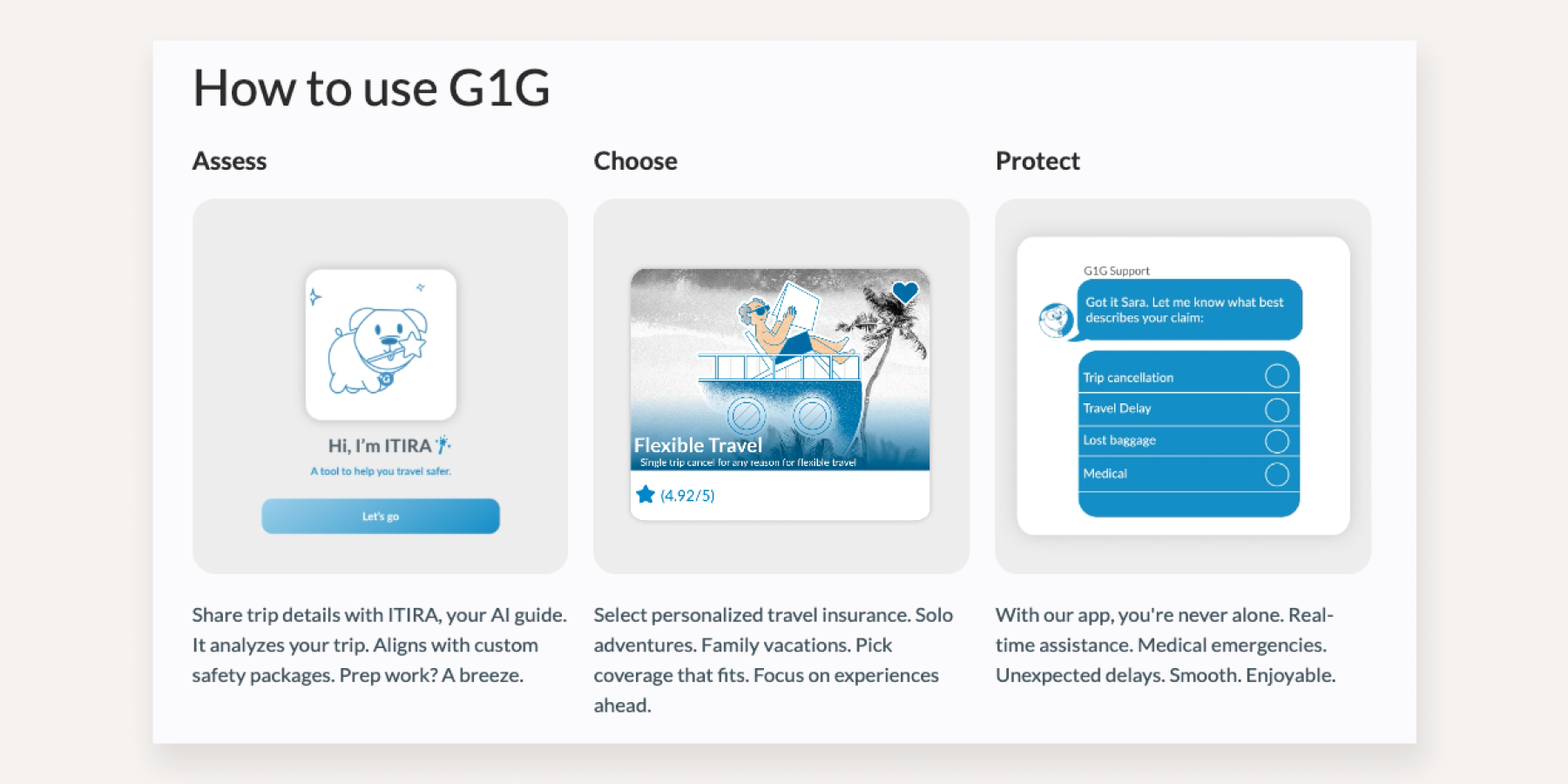

Boost CSAT with proactive AI customer service
Sustainability
15. Smarter energy management for sustainable hotels
Hotels consume vast amounts of energy, but AI-powered systems are making sustainability easier. By analyzing occupancy patterns, weather forecasts, and real-time energy use, AI can help optimize heating, cooling, and lighting to reduce unnecessary consumption without sacrificing guest comfort.
These intelligent systems adjust temperature settings in unoccupied rooms, dim lights during off-peak hours, and detect energy inefficiencies, helping hotels cut costs while lowering their carbon footprint. With rising demand for eco-friendly travel, AI-powered energy management provides both financial and environmental benefits.
Example: Recogizer’s AI-based energy management system analyzes real-time occupancy patterns and external factors to optimize heating, ventilation, and air conditioning (HVAC), helping hotels reduce energy consumption while maintaining guest comfort.
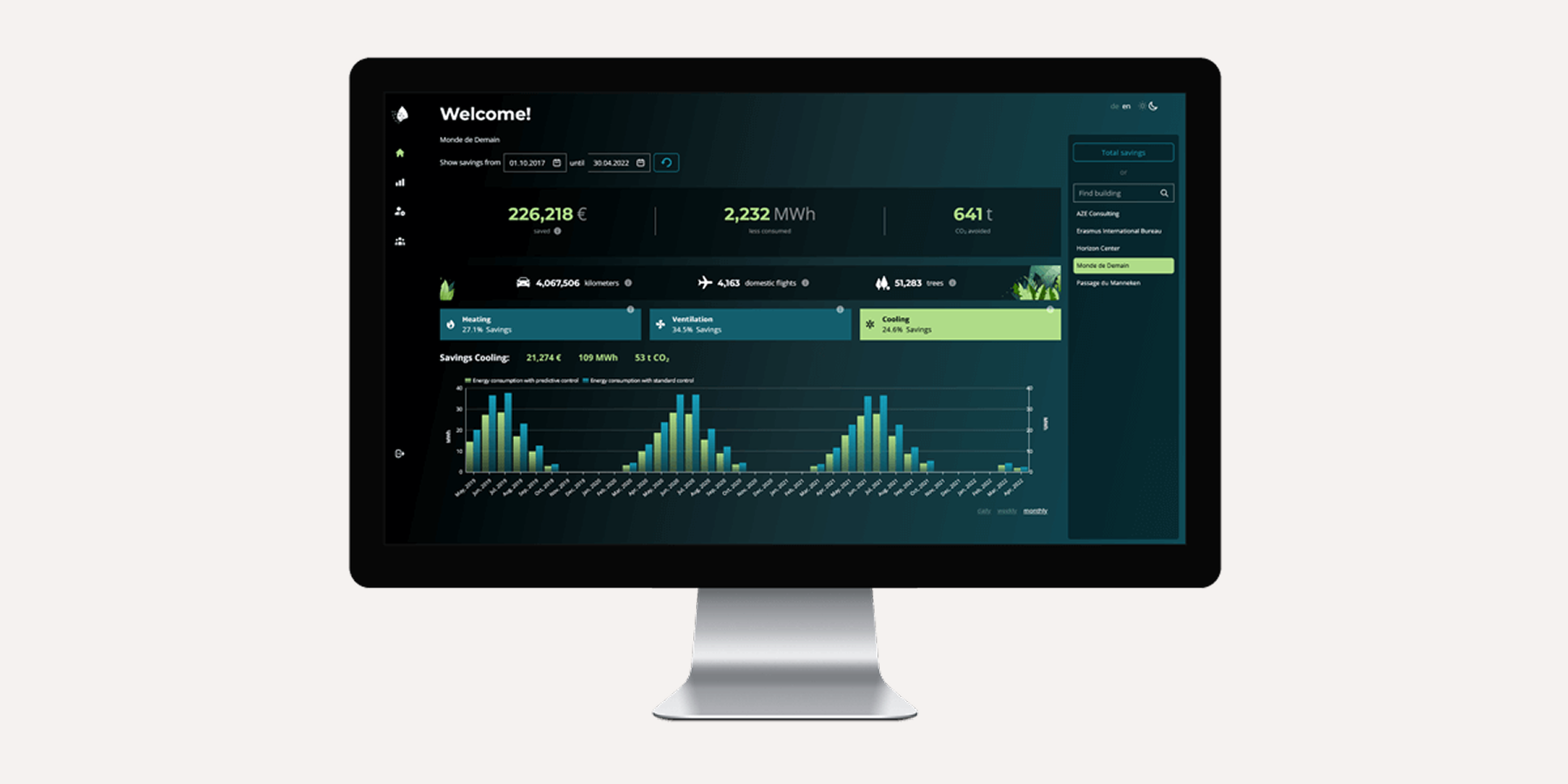
16. Optimizing travel routes for a greener future
Airlines are using AI to reduce carbon emissions by optimizing flight paths, minimizing fuel consumption, and improving air traffic efficiency. Traditional routing methods can lead to unnecessary fuel burn and delays, but AI analyzes weather conditions, historical flight data, and fuel efficiency metrics to determine the most eco-friendly routes.
By using AI-powered route optimization, airlines can lower operating costs, reduce emissions, and improve on-time performance. As the industry moves toward greener aviation, AI is becoming a critical tool in making air travel more efficient and environmentally responsible.
Example: Alaska Airlines partnered with Airspace Intelligence to implement the Flyways AI platform, which analyzes factors like weather and air traffic to optimize flight routes, resulting in significant fuel savings and reduced carbon emissions.
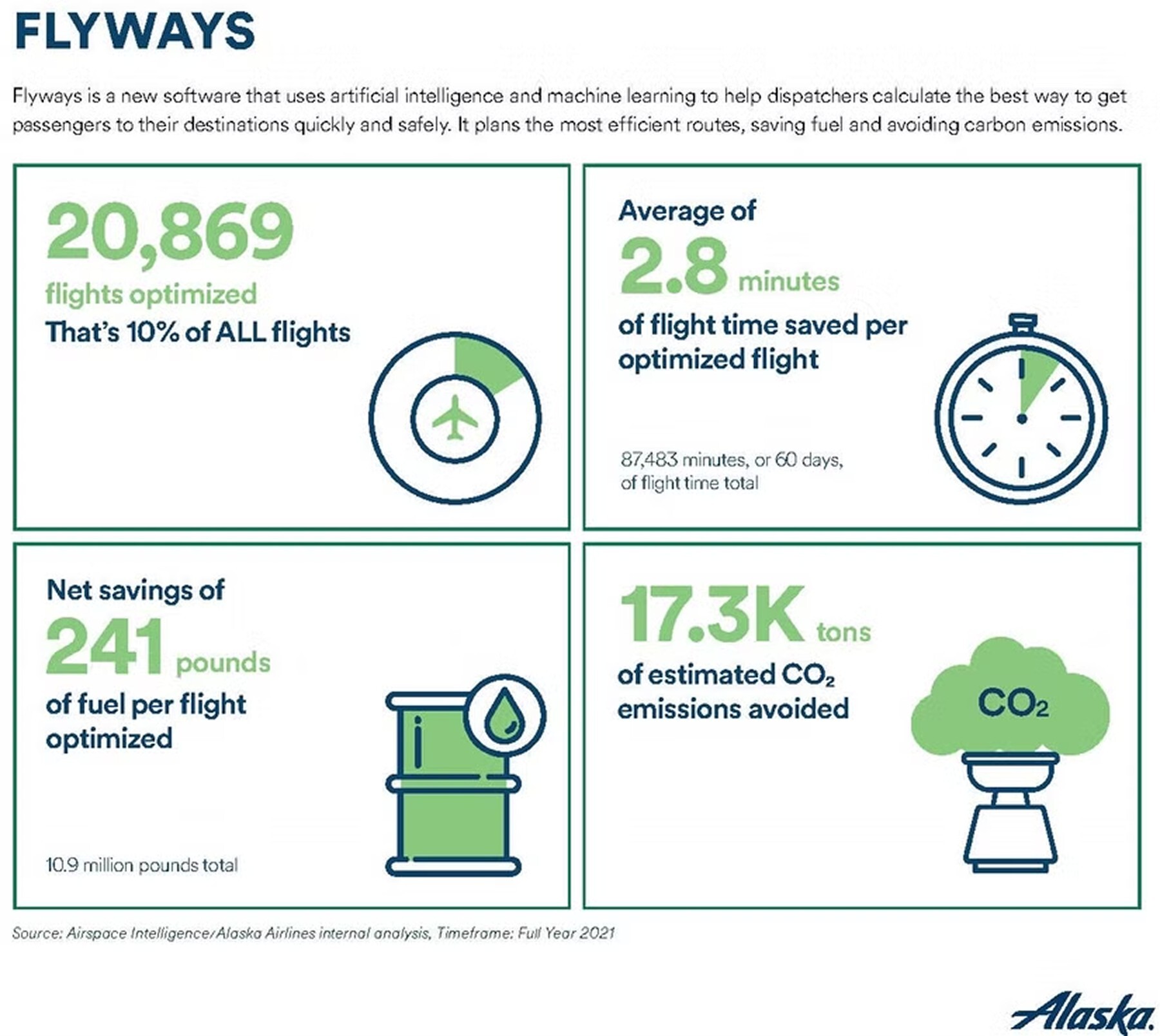
17. Better waste management for hotels
Food waste is a major challenge for hotels, driving up costs and contributing to sustainability concerns. Traditional waste management methods often rely on estimates and manual tracking, leading to excess food disposal, over-purchasing, and inefficiencies.
AI-powered waste tracking systems can analyze consumption patterns, monitor disposal trends, and optimize inventory management to help hotels reduce waste without compromising guest experience. These systems also allow hotels to adjust food production, refine purchasing strategies, and implement recycling programs.
Example: Winnow Solution’s AI-powered system helped the Conrad Shanghai hotel reduce food waste by 45% in just five months, enabling more efficient purchasing decisions and supporting the hotel’s sustainability goals.
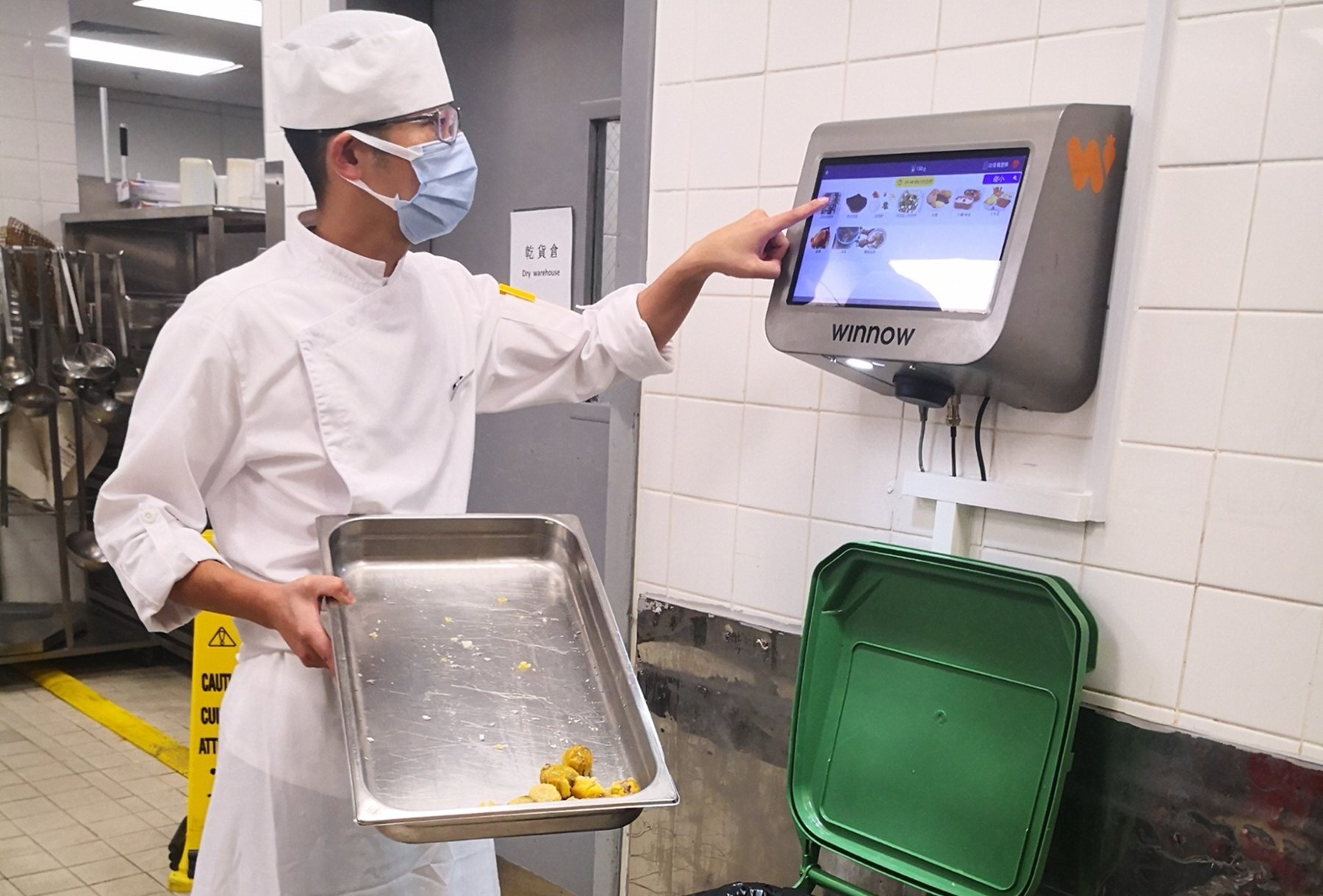
18. Faster, more efficient visa and travel document processing
Applying for visas and travel documents can be a time-consuming and complex process, often requiring extensive paperwork and long wait times. AI is streamlining this process by analyzing passenger documents, facial recognition data, and biometric information in real-time.
By automating document verification, AI helps immigration agencies and airlines detect inconsistencies, flag potential security risks, and reduce processing times. This makes international travel smoother for both passengers and border control authorities.
Example: Dubai International Airport’s "Travel Without Borders" program uses AI-powered facial recognition to verify travelers' identities throughout the terminal, eliminating the need for physical passport control stations or document checks.
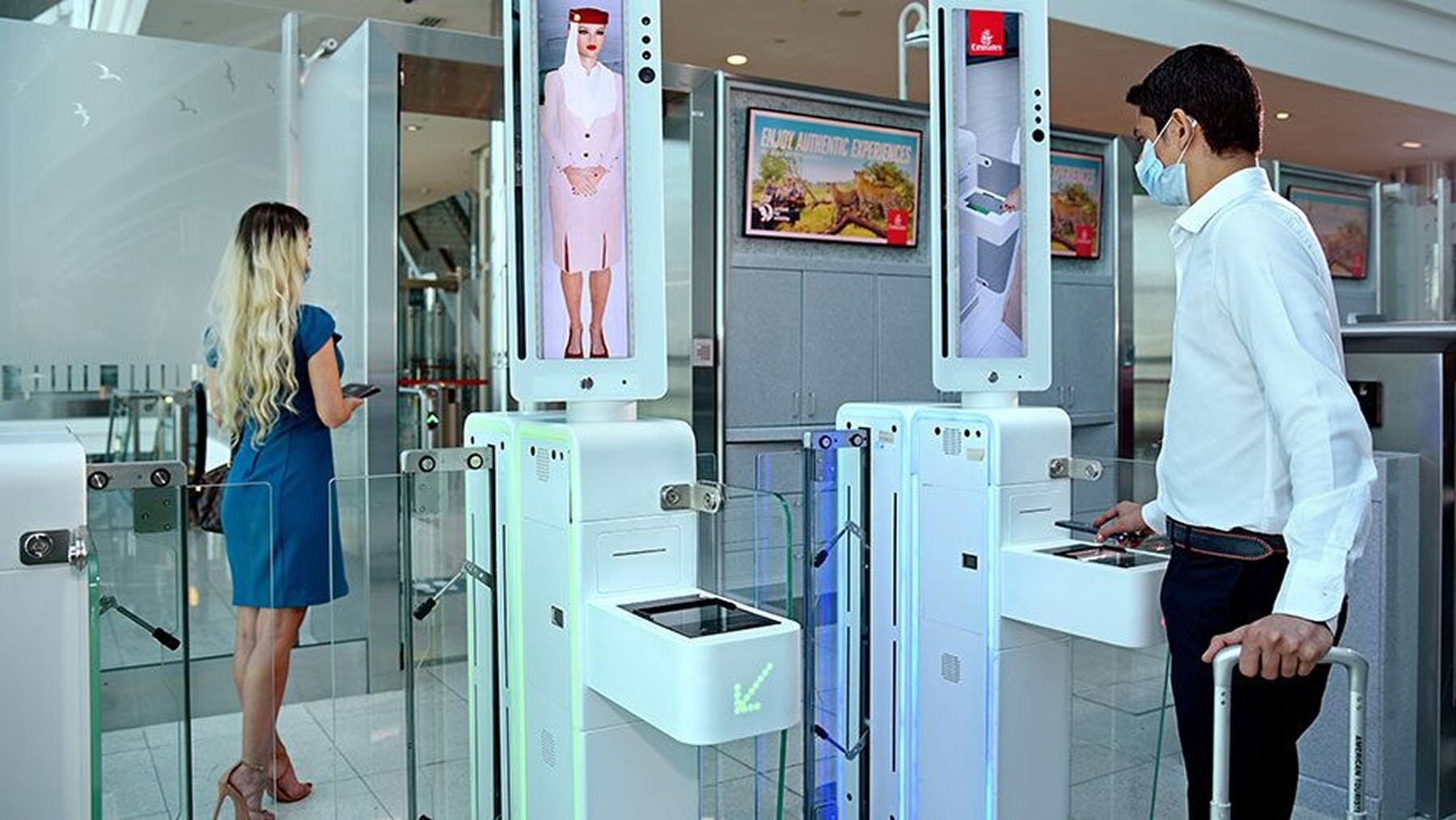

Leverage omnichannel AI for customer support
Best practices for implementing AI in travel and hospitality
You can use AI to revolutionize your travel or hospitality business. However, successful implementation requires careful planning of an AI strategy to maximize how you leverage the technology. Here are seven best practices to help you get started.
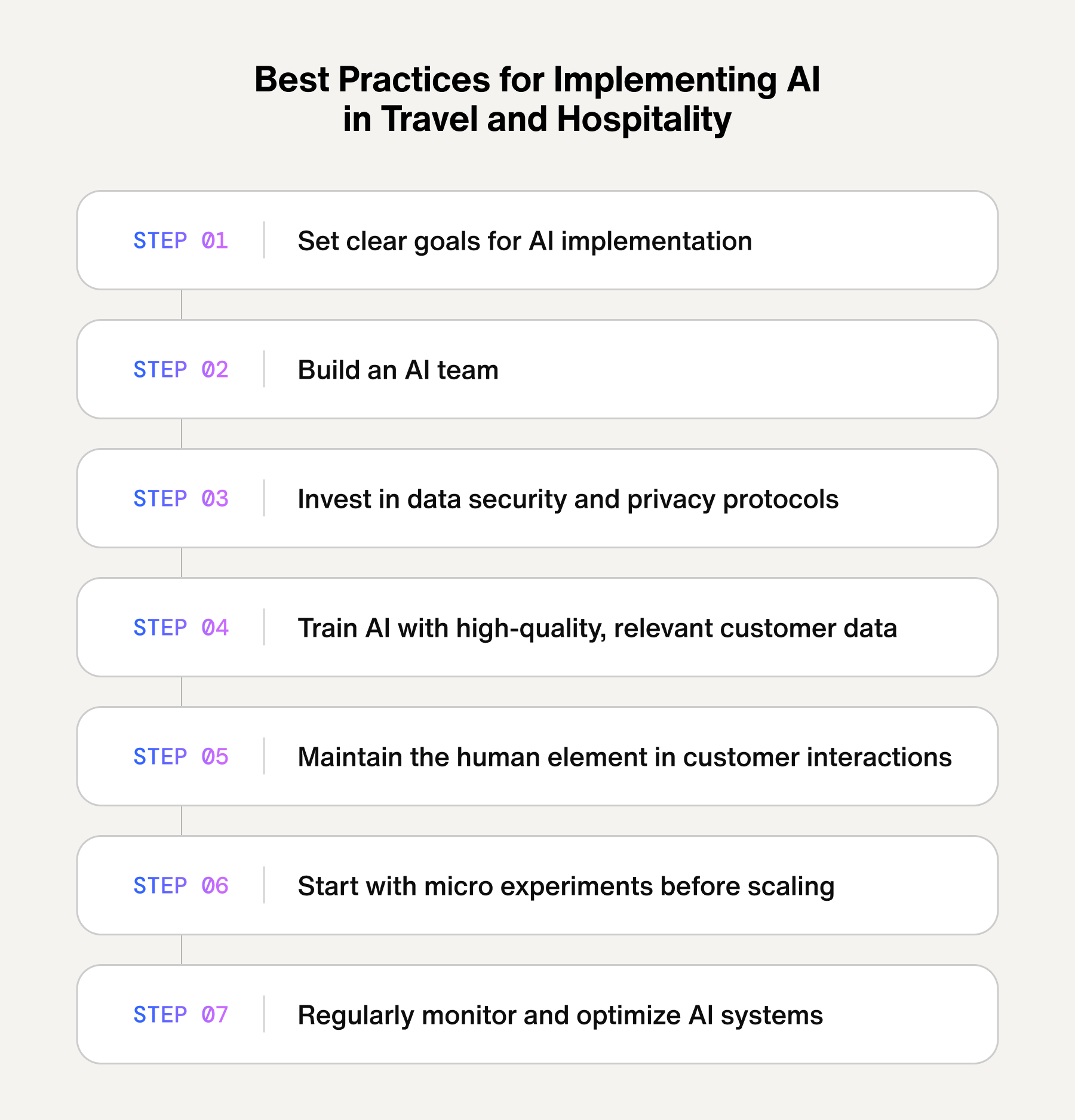
1. Set clear goals for AI implementation
Before adopting AI, businesses must define their objectives—whether improving guest experiences, automating tasks, or optimizing pricing. Without clear goals, AI initiatives can become ineffective or misaligned with business needs.
Specific objectives help select the right AI tools, allocate resources, and track success. For example, if the goal is boosting direct bookings, AI travel assistants may be ideal, while reducing costs could require AI-driven energy management. A clear strategy ensures AI delivers measurable results.
2. Build an AI team
Successfully implementing AI requires the right mix of expertise. Depending on the complexity of your AI initiatives, you may need data scientists, machine learning engineers, and AI specialists to design and maintain your systems. For travel and hospitality businesses with limited technical resources, partnering with an AI agent provider or leveraging a no-code AI agent platform can be a more accessible approach.
Beyond technical roles, operational and customer experience teams should also be involved to ensure AI aligns with business goals and enhances service quality. Training staff to work alongside AI tools (and the AI workforce) is equally important.
3. Invest in robust data security and privacy protocols
AI in travel and hospitality relies on vast amounts of customer data, from payment details and travel history to biometric and personal preferences. Without proper security measures, businesses risk data breaches, regulatory violations, and loss of customer trust. Protecting sensitive information should be a top priority when implementing AI-driven solutions.
Ensure compliance with global data privacy regulations such as GDPR, CCPA, and PCI DSS, and adopt industry best practices like encryption, anonymization, and secure API integrations. Regularly audit AI systems for vulnerabilities and establish clear data governance policies that define how customer data is collected, stored, and used.
4. Feed AI high-quality, relevant customer data
To deliver truly personalized experiences, travel and hospitality businesses must ensure their AI systems have access to high-quality, relevant customer data via knowledge base and customer relationship management (CRM) systems. This includes past booking history, preferences, real-time behaviors, and sentiment analysis from reviews and feedback.
However, data collection alone isn’t enough. The data must be structured, analyzed, and applied thoughtfully to ensure AI delivers relevant and meaningful personalization. Without proper organization and analysis, AI may misinterpret data, leading to generic, inaccurate, or even intrusive recommendations that frustrate customers instead of enhancing their experience.
5. Maintain the human element in customer interactions
Striking the right balance between AI and human touch is key to delivering exceptional guest experiences. AI can handle routine requests, predict customer needs, and personalize recommendations.
Still, there are moments when a customer wants or needs to speak with a person. This could happen with complex cases, emotional situations, or when AI can’t resolve the issue. In these instances, the AI system should hand off conversations to human agents.
6. Start with micro experiments before scaling
Implementing AI across an entire business at once can be overwhelming, expensive, and risky. Instead of a full-scale rollout, companies should start with small, controlled experiments to test AI’s effectiveness in specific areas.
For example, hotels can start by using AI for automated check-ins, personalized recommendations, or dynamic pricing to see what works, make improvements, and gradually expand its use. This approach allows businesses to identify what works, refine AI models, and minimize disruptions before investing heavily in large-scale deployment.
7. Regularly monitor and optimize AI systems
AI is not a set-it-and-forget-it solution. Without ongoing monitoring, AI tools can become outdated, biased, or ineffective over time. Travel and hospitality businesses must continuously track AI performance, analyze results, and refine actionbooks to ensure accuracy, relevance, and compliance.
Establish key performance indicators (KPIs) to measure AI’s impact on customer satisfaction, operational efficiency, and revenue growth. Regularly review data inputs to prevent bias, incorporate feedback from both customers and employees, and ensure AI transparency.

Empower your support agents with AI
The future of AI in travel and hospitality
AI adoption in the travel and hospitality industry is experiencing significant growth. The global AI market in tourism is projected to expand from $2.95 billion in 2024 to $13.38 billion by 2030. Similarly, the AI market in hospitality is expected to grow from $16.33 billion in 2023 to $70.32 billion by 2031.
That means we're still only scratching the surface of what’s possible. Here’s what’s on the horizon for AI in travel and hospitality.
Vertical AI agents for travel and hospitality
AI is evolving beyond generic automation into vertical AI agents—intelligent systems designed specifically for travel, hospitality, and transportation workflows. Unlike broad AI models like ChatGPT, these industry-specific agents handle real-time bookings, customer interactions, and logistics with greater accuracy.
By learning from travel-specific data, these AI agents help businesses automate service, optimize operations, and deliver hyper-personalized experiences. As adoption grows, they will become even more efficient at anticipating traveler needs and streamlining complex workflows.
AI travel and hospitality workforces
AI won’t replace human workers, but it will enhance their efficiency by automating routine tasks and providing real-time insights. In the travel and hospitality industry, AI agent teams are comprised of specialized AI agents for specific roles and functions, from booking and planning to guest services and customer support. By assigning each AI agent a clearly defined domain, business can optimize resources, speed up resolution times, and ensure more accurate responses.
Much like a real-world team, these specialized AI agents operate autonomously with their own knowledge bases, tools, and language settings. Hotels and travel companies can create complete AI workforces, assigning agents to handle local markets, specific customer journeys, or regional compliance requirements. As AI agents become more tailored and context-aware, travel businesses can build teams that are not only scalable, but also more customer-focused than ever.
VIP travel experiences for more travelers
Luxury travel is no longer limited to high-spending customers. AI-driven personalization and automation are making premium experiences more accessible, allowing airlines, hotels, and travel companies to offer tailored upgrades, exclusive perks, and seamless service at scale.
As AI continues to proactively anticipate customer needs and refine personalization strategies, high-end experiences will become more widely available, delivering first-class service beyond traditional luxury travelers.
Getting started with AI in travel and hospitality in 2025
If your travel or hospitality business is ready to integrate AI, Sendbird can help you build AI agents tailored to your business’s unique needs.
Our AI agent platform is built on enterprise-grade infrastructure, delivering the adaptability, security, and compliance needed to create powerful, scalable AI agents that enhance customer experiences and streamline operations.
Want to stay ahead in the evolving world of artificial intelligence? Explore these resources to ensure your business remains competitive:











